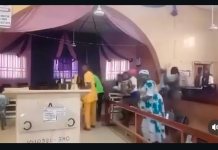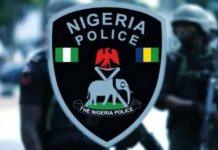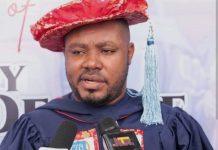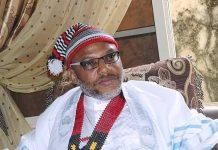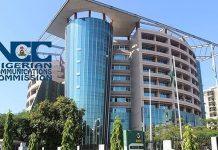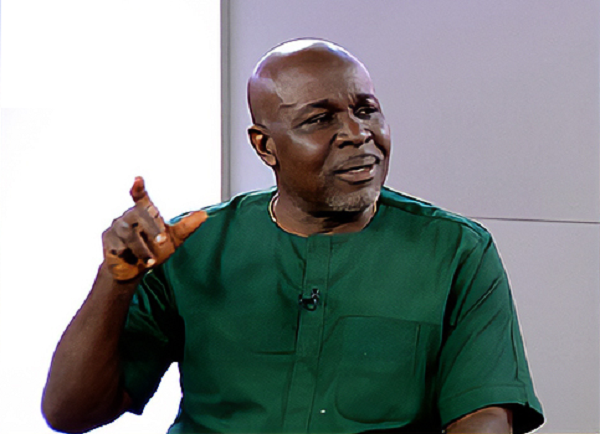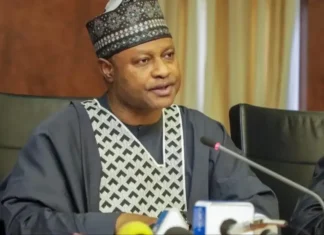Ogbakor Ikwerre Cultural Organization Worldwide’s assertion that it is the only entity that preserves the aspirations of the Ikwerre people over their choice of ethnic identity would be called into question by the fact that three Ikwerre sons ran active campaigns for the position of president-general of Ohanaeze. In actuality, these discussions are rarely resolved definitively and frequently change depending on the circumstances of the ethnic group at issue.
Interesting questions concerning identity construction have been brought up by the Ohanaeze Ndigbo’s decision to cede the presidency to the Igbo-speaking people of Rivers State and the subsequent rise of three Ikwerre sons, each of whom claims to be the new president-general of the top Igbo sociocultural group. Recall that in separate conventions, Jackson Omenazu, Uche Okwukwu, and Senator Azuta Mbata—three sons of Ikwerre—claimed to have been chosen the association’s president-general. Other Igbo-speaking communities in Rivers State include Etche, Ekpeye, Ogba, Egbema, Ndoni, Ndoki, Asa, Bonny, and Opobo, in addition to the largest group, Ikwerre.
Several notable Nigerians, including former Vice President Atiku Abubakar, Governor Peter Mbah of Enugu State, senators from the South-East, Northern Christian Youth Professionals, and Governor Siminalayi Fubara of Rivers State’s chief of staff, Dr. Ehie Edison, have congratulated Senator Azuta Mbata, who was declared elected at a convention held at the Old Government Lodge in Enugu on January 10. This gives him an extra layer of legitimacy. However, there was a swift reaction: he was disowned by the Ogbakor Ikwerre Cultural Organization Worldwide, which says it speaks for the Ikwerre ethnic identity globally. The party contended that he had voluntarily and freely surrendered his membership and identity as an Ikwerre man by agreeing to serve as president of Ohanaeze Ndigbo, which it acknowledged was his constitutional prerogative. Senator Azuta Mbata’s choice to identify as Igbo, they added, “does not represent the collective view, will, position, or thinking of the Eneka community, Apara Kingdom, or the entire Ikwerre Ethnic Nationality.”There have been hints that the Igbo agenda of territorial ambitions was a factor in Ohanaeze Ndigbo’s decision to zone its presidency to the Igbos of Rivers State. Such suggestions, in my opinion, stem from either ignorance or malice. In actuality, like many other regions of the nation, the South-East Igbos are also having discussions over who they are. Discussing how to interact with their “cousins” outside of the South-East who speak the same or a related language to them is just as important as deciding whether they should establish their identity in Nigeria as it is now or in a different nation.
For example, some contend that, despite speaking the same or a similar language, Ohanaeze Ndigbo should only be used by Igbos in the South-East. This is partially to prevent accusations of fostering territorial aspirations or pursuing individuals who do not choose to identify with them. Others, on the other hand, think that restricting Ohanaeze’s leadership to the Igbos of the South-East would be unfair to their “cousins” in Delta and Rivers states, who are proud of their Igbo identity and wish to be recognized as such. The latter side, in my opinion, prevailed in the debate, which is why the Ohanaeze Presidency was assigned to Delta State in 2008 and Ogwashiuku native Ambassador Ralph Uwechue became the organization’s president-general.
Read Also: Tinubu Strengthens Grip on Power as Opposition Weakens Ahead of 2027
It’s crucial to remember that, even in the Southeast, some regions have myths or histories that place them outside of Igboland, and they occasionally object to being referred to as Igbo. For example, the residents of Onitsha, Anambra State, would refer to non-Onitsha Igbos as “Nwa Onye Igbo,” which translates to “son or daughter of an Igbo person.” The fact that the ethnic group that another group wishes to claim as its place of origin—typically one that has some historical prestige—would also have its own myth of where its people migrated from is one of the drawbacks of depending solely on origin myths to create one’s ethnic identity. This implies that it is not a huge concern that certain Ikwerre people do not wish to be recognized as Igbo.
Of course, there are other reasons why some Igbo “cousins” outside of the South-East may be against tying their ethnic identity to the Igbo, such as a sincere belief that they share no ancestry with the Igbos and that their shared language is merely a historical coincidence. On the other hand, Igbo “cousins” who wish to tie their ethnic identification to their Igboness may have their own beliefs, such as the possible advantages of belonging to one of the nation’s major ethnic groupings.
The same is true of Delta’s Igbo-speaking population: some prefer to identify as Igbo, while others do not. For example, there are discussions and debates in Benue and Plateau states on whether it is preferable for them to establish their own identity as the Middle Belt or to root it in Northern Nigeria. The same is true in Yorubaland, where Yoruba nation activists believe that an Oduduwa Republic would be preferable, even if Bola Tinubu, the president of the country, is a Yoruba guy.
Nigeria is not alone in this trend. For example, Somalia joined the Arab League on February 14, 1974, just 14 years after gaining independence, as part of the country’s leadership’s attempts to change Somalis’ perception of themselves from Africans to Arabs. It is crucial to emphasize that there was no awareness of being Igbo, Yoruba, or Hausa/Fulani before to colonization. Therefore, using ethnicity as a marker of identity is a relatively new practice that originated in colonial metropolitan centers.
Ogbakor Ikwerre Cultural Organization Worldwide’s assertion that it is the only entity that preserves the aspirations of the Ikwerre people over their choice of ethnic identity would be called into question by the fact that three Ikwerre sons ran active campaigns for the position of president-general of Ohanaeze. In actuality, these discussions are rarely resolved definitively and frequently change depending on the circumstances of the ethnic group at issue.
For example, during a period of discrimination against Italians and Irish in the United States, some of them hid their racial and ethnic identities, but as Italy and Ireland achieved economic success, they started to publicly display them. Some of our Igbo “cousins” may be afraid that tying their ethnic identification to Igbo will ruin their careers in the current Igbophobic atmosphere. Denying or hiding your ethnic or linguistic identity to prevent it from impeding your professional advancement is known as the “bloaching complex” elsewhere.
Of course, there are other reasons why some Igbo “cousins” outside of the South-East may be against tying their ethnic identity to the Igbo, such as a sincere belief that they share no ancestry with the Igbos and that their shared language is merely a historical coincidence. Instead of concentrating solely on the current situation of the Igbos in the nation, Igbo “cousins” who wish to tie their ethnic identity to their Igboness may have their own beliefs, such as the possible advantages of belonging to one of the dominant ethnic groups in the nation.
The commotion surrounding the appointment of an Ikwerre as Ohanaeze’s president-general poses several significant issues from the standpoint of identity: The Ikwerres are who? Who do they claim to be? Who are they hoping to become? And why?
It makes sense that the Ogbakor Ikwerre Cultural Organization Worldwide chose to take harsh measures against Senator Azuta Mbata, including literally expelling him from the Ikwerre society and voiding any chieftaincy title that any Ikwerre community had bestowed upon him. Does the organization actually possess such authority over any Ikwerre individual? I highly doubt it.
My well-received edited book on identity, Who is an African?, was published in 2009. Citizenship, Identity, and the Formation of the African Nation. Several well-known Africanists, including the late Professor Ali Mazrui, Professor Kwesi Prah, Professor Mammo Muchie, and Gamal Nkrumah, the son of the late Kwame Nkrumah, contributed to the book. I gave the book an introduction like this:
“Who is an African? On the surface, the solution appears to be clear. It would appear that everyone is aware of the identity of the African. However, adding more inquisitive qualifiers to the query makes the answer less clear. Given the diversity of identities held by persons of African descent both inside and outside the continent, how is the African identity created? Do people who identify as African or who have African ancestry think of themselves as African? Are those who identify as Africans accepted for who they are? Are some people more African than others, and are there different degrees of “Africanness”? What relationships exist between African identity and other tiers of citizenship and identity in Africa? What effects does the controversial nature of African citizenship and identity have for pan-Africanism initiatives, the formation of the Africa-nation, and the continent’s development paths?
In light of the aforementioned, we should consider the following aspects of identity construction: One is that each person or group represents a variety of identities rather than simply one. Despite having different ethnic and religious identities, some people may have a number of other identities in common, such as belonging to the same political party, sports team, occupation, gender, etc. In essence, if a person feels sufficiently rooted to both identities, they can be both Igbo and Ikwerre.
Two, the most vocally defended identities are frequently those that are seen as being in danger. We all have multiple identities, but if your identity as an Igbo, Yoruba, Ikwerre, Christian, Muslim, scholar, and so forth is threatened, your other identities will be buried as you protect the identity that is perceived as being in danger. For example, when a White person calls a Black person “Black Monkey,” many Black people worldwide may react strongly, if not violently. However, a White person who is referred to as a “White monkey” might not get the same reaction from other White people.
As a result, it makes sense that the Ogbakor Ikwerre Cultural Organization Worldwide chose to take harsh measures against Senator Azuta Mbata, including literally expelling him from the Ikwerre community and voiding any chieftaincy title that any Ikwerre community had bestowed upon him. Does the organization actually possess such authority over any Ikwerre individual? I highly doubt it. The Ogbakor Ikwerre Cultural Organization Worldwide’s hard-line stance may serve as a reminder that, even with Senator Azuta Mbata’s election as Ohanaeze Ndigbo’s president general, there is still disagreement over where the Ikwerres should base their ethnic identity.
Third, identities exist in both space and time. Both the Ikwerres and the Igbos shared the identity of being from the Eastern region until Gowon created the 12 states in 1967. Similarly, if the Ikwerres were in a far-off country with people from various racial and ethnic backgrounds, such as the Igbos of the South-East, they would probably feel more kinship with the latter than with other groups in the imagined country just because of their shared (or comparable) language and culture.
Join Television Nigerian Whatsapp Now
Join Television Nigerian Facebook Now
Join Television Nigerian Twitter Now
Join Television Nigerian YouTUbe Now

